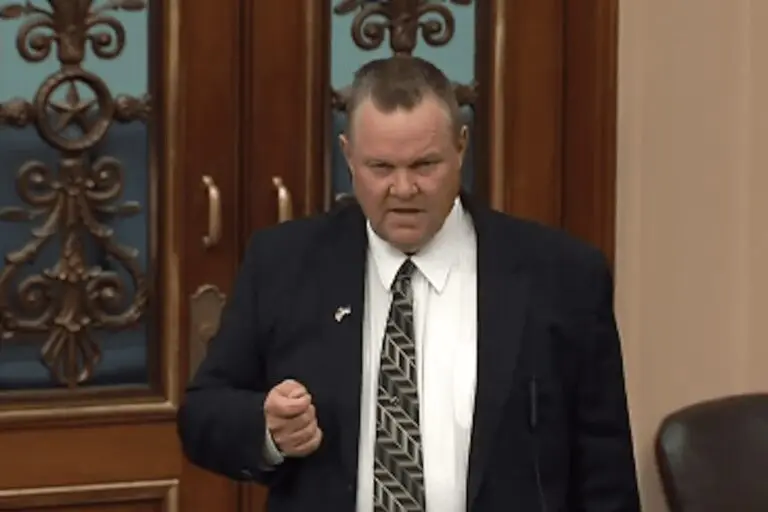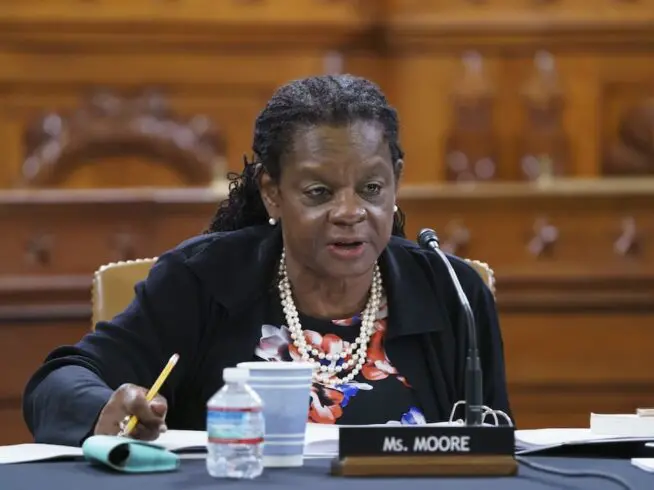41 Republican senators break their promise to protect veterans’ health

Josh Israel
Senate Republicans blocked the Honoring Our PACT Act of 2022, which would expand health care for veterans exposed to toxic burn pits.
Forty-one Senate Republicans blocked a bipartisan compromise bill on Wednesday that would expand health care for veterans who were exposed to toxic chemicals while serving. Every one of those no votes came from a Republican senator who had previously pledged to support military veterans and their health care.
Twenty-four of the senators who voted no had voted for a nearly identical bill just weeks ago.
Their flip-flops came shortly after Senate Democrats announced a major agreement on a budget reconciliation package that would invest in climate change action, health care, and fighting inflation — efforts the GOP minority has fiercely opposed.
Eight Republicans joined all 48 of the Democrats present in supporting the bill, but that fell short of the 60-vote supermajority required to end the GOP filibuster. Majority Leader Chuck Schumer changed his vote to no at the last minute for procedural reasons, enabling him to force another vote in the future. The final vote was 55-42.
The Sergeant First Class Heath Robinson Honoring our Promise to Address Comprehensive Toxics Act of 2022 would provide expanded health coverage for veterans who were exposed to burn pits and Agent Orange; create an interagency Toxic Exposure Research Working Group to plan and increasefederally backed research on toxic exposure; and make 3.5 million combat veterans who served since September 2001 eligible for health care through the Department of Veterans Affairs.
The language of the bill is a bipartisan compromise negotiated by Democrat Jon Tester of Montana, chair of the Senate Veterans’ Affairs Committee, and ranking member Sen. Jerry Moran (R-KS).
The Senate previously passed the bill by a vote of 84-14 on June 16. But because it contained a tax-related provision, and the Constitution requires that all tax legislation originate in the House of Representatives, the process of passing the legislation had to be restarted there. The House passed the bill by a vote of 342-88 on July 13, with 123 Republicans joining 219 Democrats in voting in favor, and all of the no votes coming from Republicans.
Texas Republican Rep. Chip Roy argued against the bill, telling colleagues: “The bill spends about $285 billion that we don’t have. … We are destroying the republic that these men and women sacrifice for … We do a disservice to the military that we say that we support when we are not spending money that we actually have, as opposed to printing money and borrowing money. … These are real concerns that we ought to address, but fundamentally, you have to pay for that which we are spending.”
Tester tried to obtain unanimous consent in the Senate to adopt the House’s version, but, as Roll Call reported on July 12, Republican Sen. Pat Toomey of Pennsylvania opposed the action over concerns that the legislation would classify much of veterans’ health as mandatory spending, circumventing federal spending caps.
Toomey’s official website says, “Since joining the Senate, Senator Toomey has been constantly working to help Pennsylvania’s veterans obtain the services and benefits they rightfully deserve and welcomes the opportunity to be of assistance. On a bipartisan basis, he also looks forward to working with his Senate colleagues on additional ways to help ensure the welfare of our veterans and their families.”
All of the other Senate Republicans who voted against the bill have previously framed themselves as dedicated supporters of America’s veterans and their health care.
On his Senate page, Minority Leader Mitch McConnell claims, “I am proud to represent the thousands of veterans who live in Kentucky. These men and women made a promise to our country, and in return we must keep our promise to them.”
Minority Whip John Thune pledges on his own official website, “I will continue to work with my colleagues in the Senate, veterans service organizations, and South Dakota veterans to ensure America’s veterans have the resources, support, and respect they need and deserve once their military service has ended.”
“Our veterans deserve the very best care from a grateful nation,” Republican Conference Chair John Barrasso said in a May 2018 press release.
National Republican Senatorial Committee Chair Rick Scott said in a November 2020 op-ed that was reprinted on his Senate website: “As a U.S. Senator and member of the Armed Services Committee, I’m continuing the fight to ensure that Florida remains a national leader for military and defense and that our veterans, military members and their families are provided the support they need to keep the nation safe and to succeed even after their service.”
Sens. John Barrasso (WY), Marsha Blackburn (TN), Roy Blunt (MO), Mike Braun(IN), Richard Burr (NC), Bill Cassidy (LA), John Cornyn (TX), Tom Cotton (AR), Kevin Cramer (ND), Mike Crapo (ID), Ted Cruz (TX), Steve Daines (MT), Joni Ernst (IA), Betsy Fischer (NE), Bill Hagerty (TN), Josh Hawley (MO), Cindy Hyde-Smith (MS), Jim Inhofe (OK), Ron Johnson (WI), John Kennedy (LA), James Lankford (OK), Mike Lee (UT), Cynthia Lummis (WY), Roger Marshall (KS), Rand Paul (KY), Rob Portman (OH), Jim Risch (ID), Mitt Romney (UT), Mike Rounds(SD), Ben Sasse (NE), Tim Scott (SC), Richard Shelby (AL), Dan Sullivan (AK), Thom Tillis (NC), Tommy Tuberville (AL), Roger Wicker (MS), and Todd Young(IN) have each posted similar promises on their Senate or campaign websites or on social media.
After the vote on Wednesday, Tester criticized his Republican colleagues for breaking their promises to veterans.
“This is a sad day in the United States Senate. This is the biggest issue facing our veterans today,” he said in a floor speech, noting that veterans groups have been talking to him about the issue for 15 years. “So we can make up all sorts of excuses about how this is going to move money around, but let me tell you something: We’re the ones that decide that. If we want to move money around, we will. If we don’t, we won’t. In the meantime, let’s pass this bill. Let’s get veterans the health care they’ve earned. If it isn’t, it’s political malpractice. What we’re doing today with this policy, by putting this policy off, does nobody any good whatsoever.”
Tester tweeted after the vote, “In an eleventh-hour act of cowardice, Republicans chose today to rob generations of toxic-exposed veterans across this country of the health care and benefits they’ve earned and so desperately need. Make no mistake—the American people are sick and tired of these games.”
President Joe Biden strongly backs the bill and has vocally advocated for an increased focus on toxic exposure among military veterans.
Published with permission of The American Independent Foundation.




